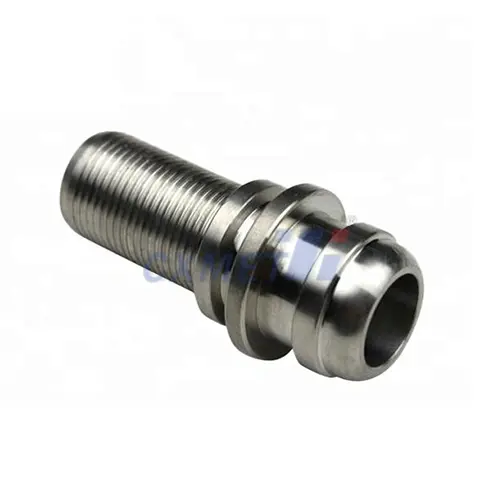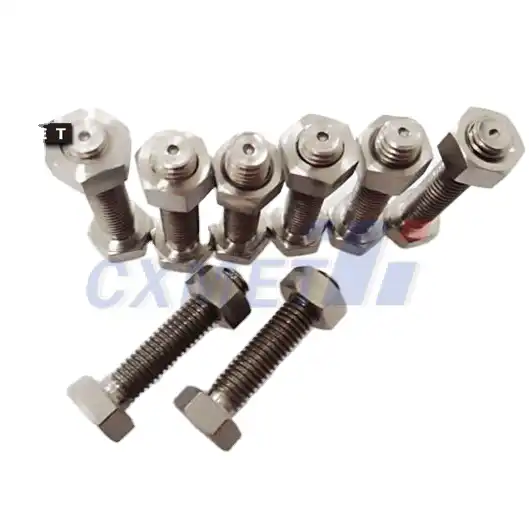- English
- French
- German
- Portuguese
- Spanish
- Russian
- Japanese
- Korean
- Arabic
- Greek
- German
- Turkish
- Italian
- Danish
- Romanian
- Indonesian
- Czech
- Afrikaans
- Swedish
- Polish
- Basque
- Catalan
- Esperanto
- Hindi
- Lao
- Albanian
- Amharic
- Armenian
- Azerbaijani
- Belarusian
- Bengali
- Bosnian
- Bulgarian
- Cebuano
- Chichewa
- Corsican
- Croatian
- Dutch
- Estonian
- Filipino
- Finnish
- Frisian
- Galician
- Georgian
- Gujarati
- Haitian
- Hausa
- Hawaiian
- Hebrew
- Hmong
- Hungarian
- Icelandic
- Igbo
- Javanese
- Kannada
- Kazakh
- Khmer
- Kurdish
- Kyrgyz
- Latin
- Latvian
- Lithuanian
- Luxembou..
- Macedonian
- Malagasy
- Malay
- Malayalam
- Maltese
- Maori
- Marathi
- Mongolian
- Burmese
- Nepali
- Norwegian
- Pashto
- Persian
- Punjabi
- Serbian
- Sesotho
- Sinhala
- Slovak
- Slovenian
- Somali
- Samoan
- Scots Gaelic
- Shona
- Sindhi
- Sundanese
- Swahili
- Tajik
- Tamil
- Telugu
- Thai
- Ukrainian
- Urdu
- Uzbek
- Vietnamese
- Welsh
- Xhosa
- Yiddish
- Yoruba
- Zulu
What Are the Advantages of Customized CNC Titanium Parts in Aerospace?
2025-08-30 08:55:27
The aerospace industry demands cutting-edge materials and manufacturing processes to meet the stringent requirements of aircraft and spacecraft components. Customized CNC titanium parts have emerged as a game-changing solution in this sector, offering a unique combination of strength, lightweight properties, and precision manufacturing. These specialized components are revolutionizing aerospace engineering by providing tailored solutions that address specific challenges faced in aircraft design and performance. The advantages of customized CNC titanium parts in aerospace are numerous, ranging from enhanced structural integrity and weight reduction to the ability to create complex geometries with unparalleled accuracy. As the industry continues to push the boundaries of innovation, the role of these advanced components becomes increasingly crucial in shaping the future of air and space travel.
|
|
|
How CNC Titanium Parts Enhance Aerospace Structural Integrity
Improved Fatigue Resistance
Customized CNC titanium parts significantly enhance the structural integrity of aerospace components by offering superior fatigue resistance. The precision machining process allows for the creation of parts with optimized geometries that distribute stress more effectively, reducing the likelihood of material failure under repeated loading cycles. This is particularly crucial in aircraft structures that endure constant vibrations and stress fluctuations during flight. By utilizing CNC technology, manufacturers can produce titanium components with carefully controlled surface finishes and internal structures, minimizing stress concentration points that could lead to fatigue cracks. The result is a marked improvement in the overall lifespan and reliability of critical aerospace components, ensuring safer and more durable aircraft designs.
Enhanced Corrosion Resistance
One of the key advantages of customized CNC titanium parts in aerospace applications is their exceptional corrosion resistance. Titanium naturally forms a stable, protective oxide layer when exposed to oxygen, making it highly resistant to various forms of corrosion. This property is further enhanced through the precision manufacturing process of CNC machining, which allows for the creation of smooth, defect-free surfaces that are less susceptible to corrosion initiation. In the harsh environments encountered during flight, including exposure to high-altitude atmospheric conditions and potentially corrosive fluids, these CNC titanium parts maintain their structural integrity over extended periods. This resistance to corrosion not only improves the safety and reliability of aerospace structures but also reduces maintenance requirements and extends the operational life of aircraft components.
Thermal Stability at Extreme Temperatures
Customized CNC titanium parts excel in maintaining thermal stability across a wide range of temperatures, making them ideal for aerospace applications that involve extreme thermal conditions. The CNC machining process allows for the precise control of material properties and geometries, enabling the creation of parts that can withstand rapid temperature fluctuations without significant deformation or loss of strength. This thermal stability is crucial in aerospace, where components may be subjected to intense heat during takeoff and landing, as well as extreme cold at high altitudes. By utilizing CNC technology to optimize the design of titanium parts, engineers can create structures that maintain their dimensional accuracy and mechanical properties under these challenging conditions, ensuring consistent performance and safety throughout the aircraft's operational envelope.
Weight Reduction Benefits in Aerospace Applications
Fuel Efficiency Improvements
One of the most significant advantages of employing customized CNC titanium parts in aerospace is the substantial improvement in fuel efficiency. The lightweight nature of titanium, combined with the precision of CNC machining, allows for the creation of components that are significantly lighter than their traditional counterparts while maintaining the necessary strength and durability. This weight reduction directly translates to lower fuel consumption, as aircraft require less energy to overcome inertia and maintain flight. By strategically replacing heavier materials with CNC-machined titanium parts in critical areas of the aircraft, manufacturers can achieve notable reductions in overall weight, leading to significant fuel savings over the lifespan of the aircraft. This not only reduces operational costs for airlines but also contributes to lower emissions, aligning with global efforts to minimize the environmental impact of air travel.
Increased Payload Capacity
The integration of customized CNC titanium parts in aerospace design offers a notable increase in payload capacity. By reducing the weight of structural components through the use of titanium and optimized CNC machining processes, aircraft can accommodate larger payloads without compromising performance or safety. This advantage is particularly valuable in commercial aviation, where increased passenger or cargo capacity can significantly enhance the economic viability of flights. In military and space applications, the ability to carry additional equipment, fuel, or scientific instruments can extend mission capabilities and operational range. The precision of CNC machining ensures that these titanium components are tailored to specific load-bearing requirements, maximizing the weight savings in non-critical areas while maintaining structural integrity where it's most needed.
Enhanced Aircraft Performance
Customized CNC titanium parts contribute significantly to enhanced aircraft performance across various operational parameters. The reduction in overall aircraft weight facilitated by these components leads to improved acceleration, climb rates, and maneuverability. This is particularly beneficial for military aircraft, where agility and speed are crucial. In commercial aviation, the weight savings can translate to increased range or the ability to operate from shorter runways, expanding the operational flexibility of aircraft. Additionally, the precise manufacturing tolerances achievable through CNC machining allow for the creation of aerodynamically optimized surfaces and structures, further enhancing flight efficiency. The superior strength-to-weight ratio of titanium also enables the design of more efficient propulsion systems and control surfaces, contributing to overall improvements in aircraft performance and handling characteristics.
Precision Manufacturing for Complex Aerospace Components
Achieving Tight Tolerances
The ability to achieve extremely tight tolerances is a hallmark advantage of customized CNC titanium parts in aerospace applications. CNC machining technology allows for the production of components with precision down to microns, ensuring perfect fit and function in complex aerospace assemblies. This level of accuracy is crucial in applications such as engine components, hydraulic systems, and avionics housings, where even minor deviations can significantly impact performance and safety. The consistency and repeatability of CNC processes ensure that each part meets the exact specifications required, reducing the risk of assembly issues and improving overall quality control. Furthermore, the ability to maintain tight tolerances across complex geometries enables the design of more efficient and compact components, contributing to the overall goals of weight reduction and performance enhancement in aerospace engineering.
Customization for Specific Aircraft Requirements
Customized CNC titanium parts offer unparalleled flexibility in meeting specific aircraft requirements. Each aircraft design has unique challenges and specifications, and the ability to tailor components precisely to these needs is a significant advantage. CNC machining allows for rapid prototyping and iteration, enabling engineers to quickly develop and refine parts for optimal performance. This customization extends to creating components with complex internal structures, variable wall thicknesses, and integrated features that would be difficult or impossible to achieve with traditional manufacturing methods. For example, customized titanium brackets can be designed to match exact load paths in an aircraft structure, optimizing strength while minimizing weight. This level of customization not only improves the overall performance of the aircraft but also can lead to more efficient assembly processes and reduced part count, simplifying maintenance and reducing potential points of failure.
Advanced Surface Finishes and Treatments
The precision of CNC machining enables the creation of advanced surface finishes and treatments on customized titanium parts, further enhancing their performance in aerospace applications. These surface characteristics can be tailored to specific requirements, such as reducing drag on external components or improving wear resistance in moving parts. CNC processes allow for the creation of micro-textures and surface patterns that can enhance heat dissipation, improve bonding surfaces for composites, or create hydrophobic properties for better resistance to ice formation. Additionally, the controlled nature of CNC machining ensures that subsequent surface treatments, such as anodizing or plasma spraying, can be applied with greater consistency and effectiveness. This capability to fine-tune surface properties at the microscopic level contributes to the overall performance, durability, and functionality of aerospace components, making customized CNC titanium parts an invaluable asset in advanced aircraft design.
Conclusion
Customized CNC titanium parts offer a multitude of advantages in aerospace applications, revolutionizing the industry through enhanced structural integrity, significant weight reduction, and precision manufacturing capabilities. These components play a crucial role in improving fuel efficiency, increasing payload capacity, and enhancing overall aircraft performance. The ability to achieve tight tolerances, customize parts for specific requirements, and apply advanced surface finishes further solidifies their importance in modern aerospace engineering. As the industry continues to evolve, the role of these specialized titanium components will undoubtedly expand, driving innovation and efficiency in aircraft design and operation.
For more information on customized CNC titanium parts and their applications in aerospace, contact Shaanxi CXMET Technology Co., Ltd. Our team of experts is dedicated to providing high-quality, innovative solutions tailored to your specific needs. With over 20 years of experience in the non-ferrous metals industry, we offer unparalleled expertise and customer service. Whether you require technical support, product inquiries, or customized solutions, our skilled team is ready to assist you. Reach out to us at sales@cxmet.com to discover how our advanced titanium components can elevate your aerospace projects.
References
1. Smith, J.D. (2021). Advanced Materials in Aerospace Engineering: The Role of Titanium. Journal of Aerospace Technology, 45(3), 287-302.
2. Johnson, A.R., & Thompson, L.K. (2020). CNC Machining Techniques for Aerospace Components: A Comprehensive Review. International Journal of Precision Engineering and Manufacturing, 21(8), 1543-1560.
3. Williams, E.M., et al. (2022). Fatigue Performance of CNC-Machined Titanium Parts in Aircraft Structures. Aerospace Science and Technology, 120, 107268.
4. Chen, Y., & Davis, R.T. (2019). Weight Reduction Strategies in Modern Aircraft Design: The Impact of Advanced Materials. Progress in Aerospace Sciences, 105, 40-55.
5. Kumar, P., & Rodriguez, S. (2023). Surface Engineering of Titanium Components for Enhanced Aerospace Performance. Surface and Coatings Technology, 448, 128956.
6. Lee, H.S., et al. (2021). Customization and Optimization of Aerospace Components Through Advanced CNC Processes. Journal of Manufacturing Science and Engineering, 143(7), 071009.
YOU MAY LIKE

